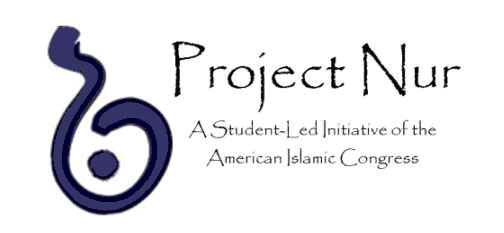
(Project Nur/Facebook.com)
Project Nur, a student-led initiative of the American Islamic Congress, organized a panel discussion on Wednesday to address Islamophobia in the age of social media following the mosque shooting in Christchurch, New Zealand.
The first mosque attack was live-streamed on Facebook by the gunman.
The panel featured history professor John Willis, religious studies professor Aun Ali and CU alum Sahor Al-nima, with presenter Niama Al-nima. Sahor Al-nima spoke on the representation of Muslims in the media, the topic of her 2018 thesis.
A major topic of the evening was the good Muslim, bad Muslim paradigm. Al-nima used an episode of “Homeland” as an example of this trope. The episode featured a terrorist attack made by a group of Muslims. The “good Muslim” is always the character that cooperates with authorities and is commonly westernized and has no ties their Islamic culture.
“What we see often times is the good Muslim is the one that has nothing to say about these injustices — who really won’t keep their faith in terms of a private set of practices that outwardly will accept the universal planes of liberalism with its multicultural veneer,” said Professor John Willis. “They can be held up as a symbol of liberal tolerance but more or less robbed of any voice.”
Willis brought up the Saudi Arabian prince Mohammad Bin Salman Al Saud as an example of this trope, who is portrayed a “symbol of global reform.” He represents a Westernized way of thinking by adopting the idea that Muslims need to reform themselves and be responsible for their own flaws that are expressed in religious extremes.
“There is a very old trope that the west needs to save Muslim women or Muslim men,” said Willis.
Sahor Al-nima expressed the frustration she felt when she was treated like a second class citizen for being Muslim. Al-nima described conversations she had where people ask her “Is it okay that you walk around like this?” — “Like this” being the “normal” fashion of Western culture and not a hijab.
Professor Aun Ali described the two responses Muslims can have towards those types of questions and comments. He explained that one response is to accept the second class status because it is exhausting to be outraged by every single infraction. The other response is to be outraged by said infractions.
“Look, this is what I have to deal with! Can you just listen for two seconds without interrupting?” is how Al-nima wanted to respond to people who ask ignorant questions.
“For a lot of people that I have talked to for the past year, they’ve had a similar reaction to it, where it’s like, ‘enough already, just enough,’’” said Al-nima.
Shannon Small went to the panel to support her friend, Sahar Al-nima. She found the conversation beneficial.
“Panels like this are good because I might be in the same circle but I’m not someone who is directly affected, so it’s always good to know what is going on and how people who are more impacted feel,” said Small.
Mansour Almuaili, another audience member and a senior international affairs major, agreed with Small, saying, “It’s always good to listen to things like this. It’s not up to us to choose what people think.”
Contact CU Independent News Staff Writer Paola Mendez Colon at paola.mendez@colorado.edu.
